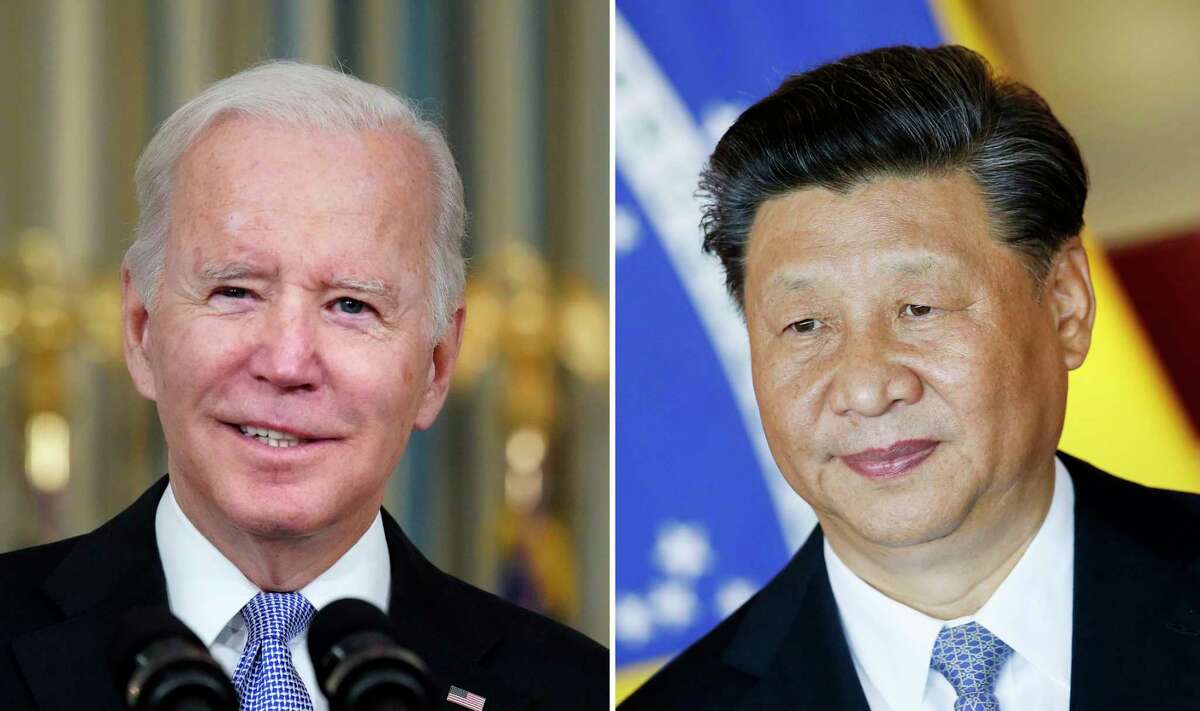
WASHINGTON, July 29 (NNN-AGENCIES) — US President Joe Biden and Chinese counterpart Xi Jinping spoke by phone for well over two hours Thursday on mounting tensions over Taiwan, trade and their bid to keep the superpower
rivalry in check.
“President Biden concluded his conversation with President Xi Jinping of the People’s Republic of China at 10:50 am,” the White House said in a statement.
They had begun speaking at 8:33 am (1233 GMT) — two hours and 17 minutes earlier.
While this was Biden’s fifth talk with Xi since becoming president a year and a half ago, it’s getting hard to mask deepening mistrust between the two countries.
The US and Chinese leaders warned each other over Taiwan during the phone call.
Biden told Xi, that the US strongly opposed any unilateral moves to change the island’s status.
But he added that US policy on Taiwan had not changed.
Beijing said Xi had told Biden to abide by the one-China principle, warning him that “whoever plays with fire will get burnt”.
Tensions over the issue have increased ahead of a rumoured plan for US House of Representatives Speaker Nancy Pelosi to visit Taiwan.
The state department says Pelosi has not announced any travel, but China has warned of “serious consequences” if she were to proceed with such a visit.
Last week, Biden told reporters “the military thinks it’s not a good idea”, but his White House has called Chinese rhetoric against any such trip “clearly unhelpful and not necessary”.
Pelosi, who is next in line to the presidency after the vice-president, would be the highest-ranking US politician to travel to Taiwan since 1997.
During Thursday’s phone call, Biden and Xi also discussed arranging a possible face-to-face meeting, a senior Biden administration official said, describing the bilateral as “direct” and “honest”.
When Biden was US vice-president he hosted Xi during a visit to the US by the Chinese leader in 2015, but they have not met in person during Biden’s presidency.
China sees Taiwan as a breakaway province that must become a part of the country – and has not ruled out the possible use of force to achieve this.
Under the one-China policy, Washington does not recognise Taipei diplomatically. But the US does sell weapons to the democratically self-governed island so that it can defend itself.
The White House said that apart from Taiwan, the two leaders discussed a range of other issues, including climate change and health security.
The Biden administration has been considering whether to lift Trump-era tariffs on Chinese imports, arguing that such a move could ease soaring US inflation. But the US president did not discuss that issue with Xi on Thursday, the senior US official said.
In a brief summary, the White House said it was part of efforts to “responsibly manage differences” and work together where “interests align”.
In a much longer one, Beijing said many of their interests did align. But it blamed the US for the deteriorating relationship, criticising the Biden administration’s view of China as a “primary rival” and Washington’s “most serious long-term challenge.”
And the dispute around Pelosi is the tip of an iceberg, with US officials fearing that Xi is mulling use of force to impose control over democratic Taiwan.
Once considered unlikely, an invasion, or lesser form of military action, is increasingly seen by China watchers as possible — perhaps even timed to boost Xi’s prestige when he moves later this year into a third term.
Biden’s contradictory comments on whether the United States would defend Taiwan — he said in May that it would, before the White House insisted there was no change in the hands-off “strategic ambiguity” policy — have not helped the tension.
Biden prides himself on a close relationship with Xi going back years but — in large part due to Covid travel restrictions — the two have yet to meet face-to-face since he took office.
According to the White House, Biden’s chief goal is to establish “guardrails” for the two superpowers.
This is meant to ensure that while they sharply disagree on democracy, and are increasingly rivals on the geopolitical stage, they can avoid open conflict. — NNN-AGENCIES
